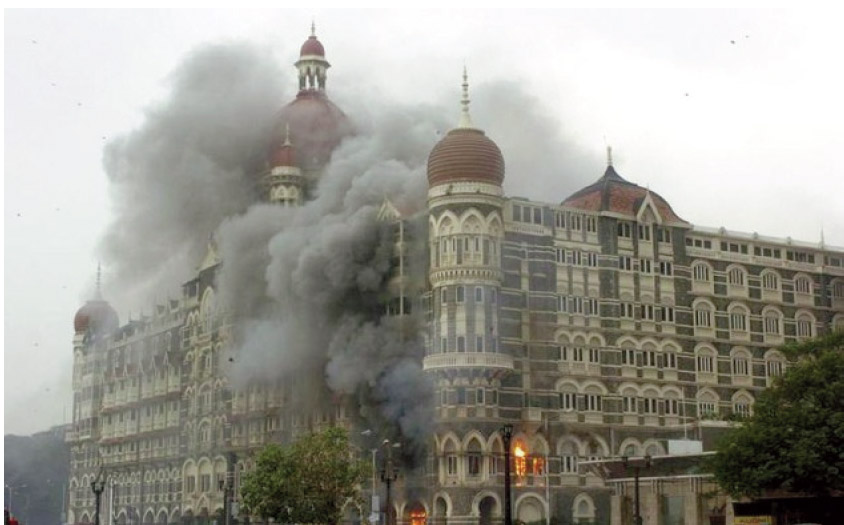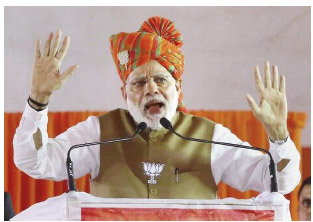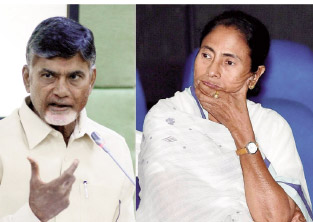Have we really learnt any lesson ?
Hari Jaisingh
 The siege of the Taj Hotel in Mumbai
The siege of the Taj Hotel in Mumbai
Have the Indian authorities learnt any lessons from the
26/11 Lashkar-e-Taiba terrorist strike on Mumbai which
killed 166 persons and injured over 600 over ten years
ago. The dead included security personnel and 28 foreign
nationals from 10 countries. This was a dastardly act of
Pakistan-based terrorists – a fact accepted even by the
authorities, including current Prime Minister Imran Khan, in Islamabad.
It is a different matter the army-controlled Pak establishment has not
acted against what it calls “non-state actors”. The wealth of evidence
however, suggests active Pak involvement in the gruesome attack in
which helpless civilians were gunned down by well-equipped terrorists
over three days in the glare of national and global television.
It was quite a chilling spectacle that exposed India’s commercial
capital’s weak police system. Mumbai police personnel were not welltrained
in counter-terrorism drill. Even the state’s anti-terrorism unit
failed to strike because of shortages of ammunition. The police’s
command and control system collapsed in the absence of proper
intelligence inputs.
It is also a well-known fact, as reported, “even the country’s elite
National Security Guards botched the siege of the Taj Hotel – setting
alight rooms to flush out terrorists”.
Some of these harsh facts
prompt me to raise certain crucial
safety questions:
One, 10 years after 26/11, are
our sea routes safer today?
Two,strong> are coastal security gaps
plugged?
Three,strong> how about our overall
national security apparatus? Have
all the gaps in our national
security infrastructure been
plugged?
At Bhilwara in pollbound
Rajasthan,
Prime Minister
Narendra Modi sent a
message to Pakistan,
saying “India will not
forget 26/11. Well, the
people of this country
have been waiting not
just for a tough
rhetoric, but a solid
action against
terrorists.
 Narendra Modi : People want
action, not tall talks
Four, how is our coordinated
functioning of various external,
domestic and state/city level
agencies? It also must not be
forgotten that Mumbai attacks
took place mainly because of
“slim non-actionable intelligence
inputs” to the Navy. What could
be more tragic than the fact that
one small vessel carrying arms,
ammunition and terrorists was
able to enter the shores of
Mumbai unnoticed and
undetected?
Narendra Modi : People want
action, not tall talks
Four, how is our coordinated
functioning of various external,
domestic and state/city level
agencies? It also must not be
forgotten that Mumbai attacks
took place mainly because of
“slim non-actionable intelligence
inputs” to the Navy. What could
be more tragic than the fact that
one small vessel carrying arms,
ammunition and terrorists was
able to enter the shores of
Mumbai unnoticed and
undetected?
There is, no denying the fact a
number of measures have been
taken to make coastal security
network full proof. Still, we cannot
be sure whether our politicobureaucratic
“lethargic strategic
culture” has been overcome by
now. I keep my fingers crossed.
There is, of course, no dearth of
politicians’ rhetoric. Nor does
Mumbai lack in the show business
of “oneness and unity” as we saw
at the glittering anniversary event
at Gateway of India with the Taj
Mahal Palace hotel in front 10
years after the horrific attack on
India’s swinging city.
At Bhilwara in poll-bound
Rajasthan, Prime Minister
Narendra Modi sent a message to
Pakistan, saying “India will not
forget 26/11”.
Well, the people of this country have been waiting not just for
such a tough message to
Islamabad, but a solid action
against terrorists. I know for
certain that Islamabad does not
care for our warning signals in
which our leaders specialize.
I am
not sure how bilateral ties would
shape in Imran Khan’s Pakistan
following the opening of a pilgrim
corridor to Gurudwara Darbar
Sahib in Kartarpur across the
border amidst multi-dimensional
pro-Pak tantrums by Punjab
Minister Navjot Singh Sidhu!
But, more than emotional
responses, we need to have the
requisite political will to deal with
national crises. Take, for instance,
Alexander’s invasion in 326 B.C.
The lesson was sharp and clear.
But we failed simply because we
tend to ignore lessons from
history. Indeed, foreign strikes
and invasions have succeeded not
because of their “military skills”
but because of our lopsided
characteristic of not learning right
lessons in unity to stand up to the
“invaders”.
No doubt, on paper, everything
looks fine. We took certain
measures.
First, the National
Investigation Agency was created
to probe terrorism matters.
Second, four National Security
Guard (NSG) hubs were set up for
rapid response system to terrorist
attacks.
Third, an amended Unlawful
Activities (Prevention) Act was
enacted to provide for the arrest
and interrogation of terrorist
suspects.
Fourth, the Multi Agency
Centre (MAC), an intelligence
agency clearing house, was set in
motion. Its subsidiary MACs
at state levels were also set up
to do their assigned jobs.
However, the country has still a
long way to go to deal with future
threats from the terrorist groups
operating freely on the other side
of the border. The problem here
is not of “non-state actors”, but
the “Pak military- cum- terrorism
axis” as seen in Jammu-Kashmir
and beyond.
India’s foreign policy
suffers from adhocism.
It gives the
impression, rightly or
wrongly, that
everything in the
corridors of power
runs on the Prime
Minister’s whims and
fancies. This calls for
deeper introspection
by policy makers and
experts. There can be
no half-way make-shift
houses in New Delhi’s
policies and strategies.
 Chandrababu Naidu and
Mamata Banerjee : No spirit of
federalism
Then, we have to face “X factor”
of China’s intentions and designs
on India’s border areas. I never
find myself comfortable with the
Narendra Modi’s China policy.
What is regrettable is everything
seems to be shrouded in secrecy
amidst big smiles of President Xi
and Prime Minister Modi.
Chandrababu Naidu and
Mamata Banerjee : No spirit of
federalism
Then, we have to face “X factor”
of China’s intentions and designs
on India’s border areas. I never
find myself comfortable with the
Narendra Modi’s China policy.
What is regrettable is everything
seems to be shrouded in secrecy
amidst big smiles of President Xi
and Prime Minister Modi.
The
moot point is: can we neutralise
the China factor vis-à-vis
Pakistan? I doubt it. The South
Block needs to explore new policy
and strategic options to deal with
the Islamabad-Beijing axis.
Unfortunately, India’s foreign
policy suffers from adhocism. It
gives the impression, rightly or
wrongly, that everything in the
corridors of power runs on the
Prime Minister’s whims and
fancies. This calls for deeper
introspection by policy makers
and experts. There can be no halfway
make-shift houses in New
Delhi’s policies and strategies.
Operationally speaking, India’s
security system is still full of holes.
First, our counter-terrorism
(CT) operation suffers from poor
police system. As an expert put it,
“getting largely land-oriented
policing system to think in
maritime fashion has not been
easy”.
Second, major gaps exist in
security relating to ports and
harbours.
Third, we are still to provide
Automatic Identification Systems for all the fishing vessels in Indian
waters.
Fourth, there has to be better
coordination among all related
agencies in the counter-terrorism
operation. This flaw became
apparent during the Pathankot
attack.
Fifth, at the national level, we
are yet to evolve a common
political consensus on terrorism
Take, for instance, two veteran
politicians, Mamata Banerjee and
Chandrababu Naidu, have said
publicly that they will not allow
the CBI to investigate cases in the
states ruled by them. This goes
against the spirit of federalism.
Of course, the CBI has the
dubious reputation of being a
“caged parrot”.
The NIA and other
agencies are falling in the same
trap of politicized “caged parrot”
of the ruling Sangh Parivar. This
is not acceptable.
No wonder, there is little
coordination among various
investigative agencies.
This would
destroy the very purpose of
dealing with the problem of
terrorism. What is equally
shocking is lack of coordination
between the National Security
Guard and the Air Force’s Garud
Commands. This is not a happy
situation, Prime Minister Modi!




 The siege of the Taj Hotel in Mumbai
The siege of the Taj Hotel in Mumbai
 Narendra Modi : People want
action, not tall talks
Narendra Modi : People want
action, not tall talks
 Chandrababu Naidu and
Mamata Banerjee : No spirit of
federalism
Chandrababu Naidu and
Mamata Banerjee : No spirit of
federalism